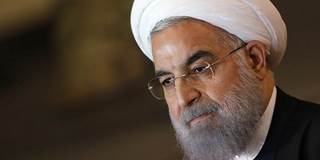Iran’s Economy After the Elections
Gains by pro-government reformist candidates in Iran’s recent parliamentary elections have given President Hassan Rouhani a welcome midterm boost. But much could still go wrong for reformist forces in the battle for the country’s political and economic future.
LONDON – Recent gains by pro-government reformist candidates in Iran’s parliamentary elections have given President Hassan Rouhani a welcome midterm boost. But huge economic challenges remain. And in the coming months, these challenges are what will determine the battle lines between the president and his hardline adversaries inside and outside the parliament.



LONDON – Recent gains by pro-government reformist candidates in Iran’s parliamentary elections have given President Hassan Rouhani a welcome midterm boost. But huge economic challenges remain. And in the coming months, these challenges are what will determine the battle lines between the president and his hardline adversaries inside and outside the parliament.